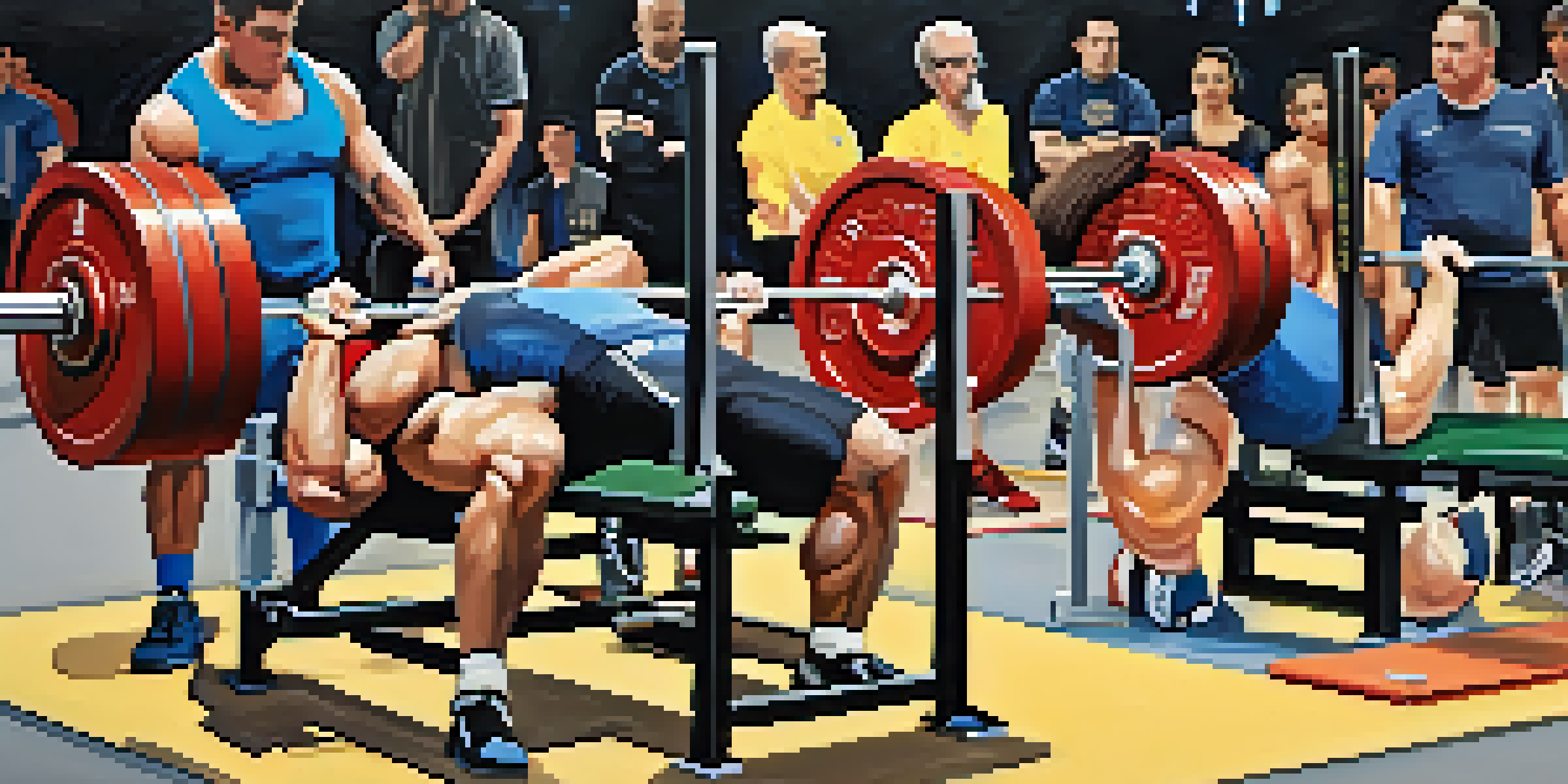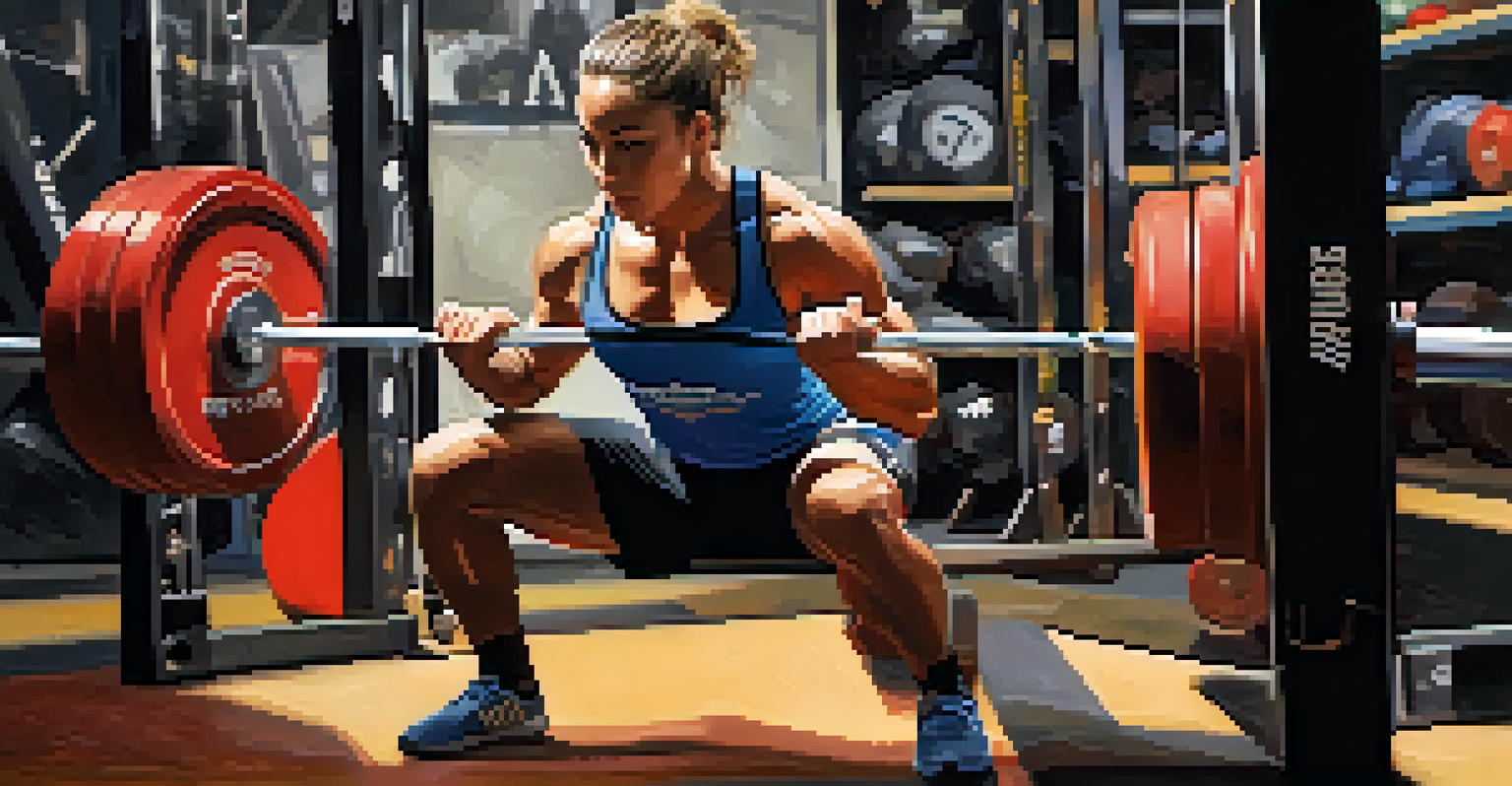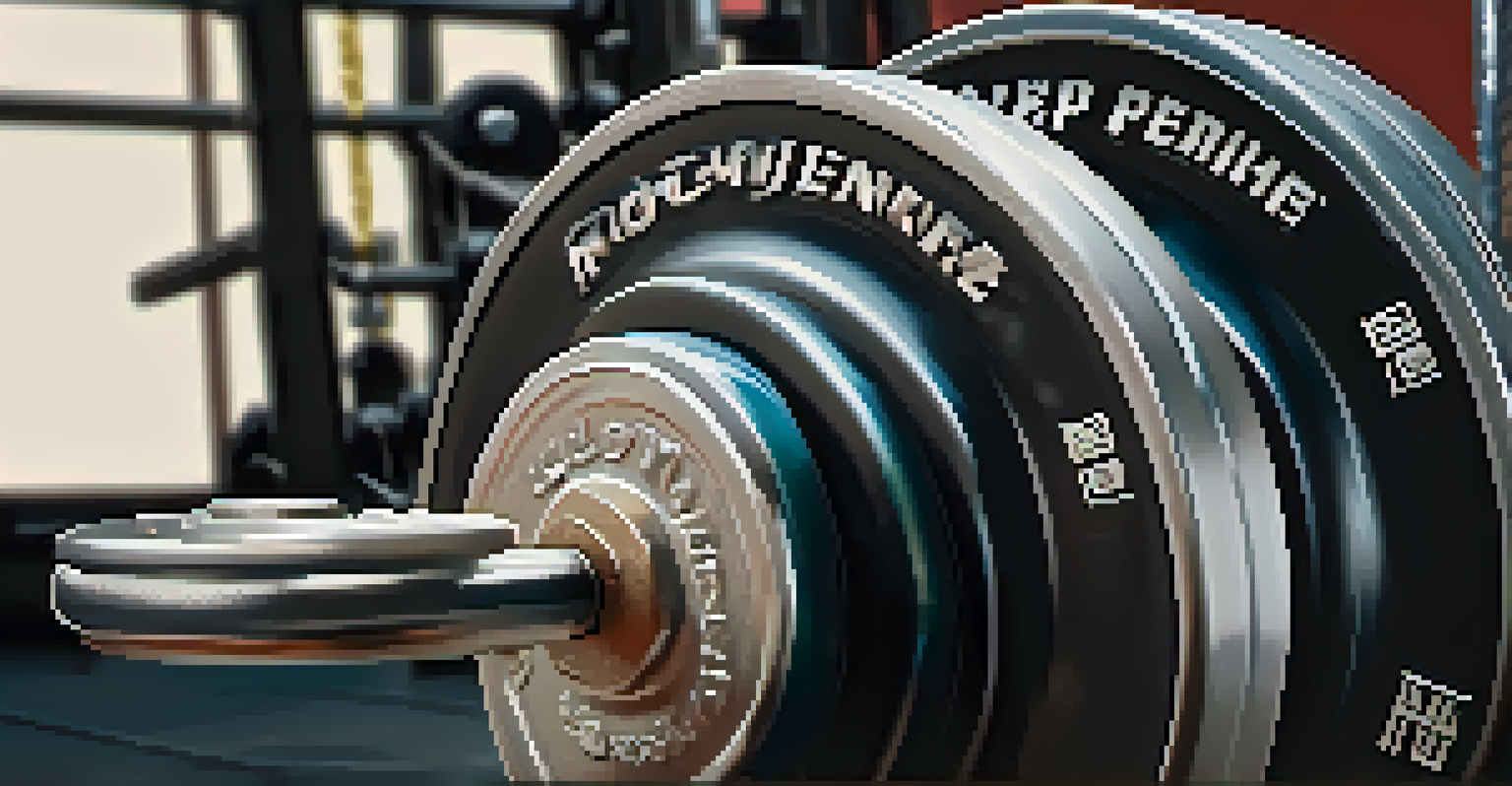How to Prepare for Your First Powerlifting Federation Meet

Understanding the Basics of Powerlifting Meets
Before diving into preparation, it’s crucial to understand what a powerlifting meet entails. Typically, these competitions consist of three main lifts: the squat, bench press, and deadlift. Each lifter performs these lifts in a specific order, aiming for their best possible weight in each category.
Success is the sum of small efforts, repeated day in and day out.
Powerlifting is not just about raw strength; it involves technique, strategy, and mental preparation. Familiarizing yourself with the rules and regulations of your chosen federation will provide clarity and reduce any surprises on the day of the event.
It’s also beneficial to attend a meet as a spectator before competing. This firsthand experience can help you grasp the atmosphere, learn how the judging works, and observe how other lifters handle the competition.
Setting Realistic Goals for Your First Meet
Setting goals is a vital part of your preparation. Focus on what you want to achieve during your first meet, whether it's hitting a specific total weight or simply enjoying the experience. Having clear and realistic goals can help keep you motivated and focused.

Remember, it’s your first meet, so it's perfectly okay to prioritize learning and growth over podium finishes. This mindset will help alleviate some of the pressure and allow you to enjoy the process more.
Understand Powerlifting Meets
Knowing the structure and rules of powerlifting meets is essential for effective preparation and performance.
Consider setting performance goals for each lift, but ensure they are achievable based on your training. This could be attempting to set personal bests or simply performing well under the competition environment.
Creating a Tailored Training Plan
A well-structured training plan is the backbone of your preparation. Ideally, your training should peak a few weeks before the meet, optimizing your strength without overtraining. This involves gradually increasing your weights while incorporating deload weeks to ensure you’re fresh on competition day.
The only way to prove you are a good sport is to lose.
Additionally, practice the lifts you'll be performing in the meet. This includes focusing on technique, experimenting with your competition gear, and getting comfortable with your approach to each lift.
Incorporate simulation days where you mimic the meet environment, complete with warm-up and attempts. This practice can help you manage nerves and prepare mentally for the actual event.
Nailing Your Nutrition and Hydration Strategy
Nutrition plays a critical role in your performance, especially leading up to your meet. Focus on consuming a balanced diet rich in protein, carbohydrates, and healthy fats to fuel your training and recovery. A well-planned nutrition strategy will help you feel strong and energized on competition day.
In the days leading up to the meet, ensure you’re well-hydrated. Dehydration can severely impact your performance, so aim to drink plenty of water. It’s also wise to avoid drastic weight cuts, as they can negatively affect your strength and endurance.
Set Realistic Competition Goals
Establishing achievable goals for your first meet helps maintain focus and reduces pressure.
On meet day, stick to familiar foods that you've tested during training. This will help avoid any gastrointestinal issues and keep your energy levels stable throughout the competition.
Choosing the Right Gear and Equipment
Selecting the right gear can make a significant difference in your performance. Ensure you have essential items like a quality lifting belt, appropriate shoes, and supportive gear for each lift. Familiarity with your equipment will boost your confidence and can enhance your overall lifting experience.
Be aware of the specific requirements of your federation regarding gear. Some federations have strict rules about what can be worn during competition, so it’s vital to check these before the meet.
Lastly, practice lifting in your competition gear during training. This will help you feel more comfortable and ensure everything fits properly, allowing you to focus solely on your performance on the day of the event.
Mastering Your Warm-Up Routine
A proper warm-up routine is essential to prepare your body and mind for lifting. Arrive at the venue early to give yourself ample time to warm up without rushing. This can include dynamic stretching, mobility exercises, and light lifts to gradually increase your heart rate and activate your muscles.
Pay attention to the specific warm-up protocols of your federation. Each organization may have different rules about when and how to warm up, so it's important to align with those guidelines.
Prioritize Nutrition and Gear
Proper nutrition and the right equipment significantly impact your performance on competition day.
Lastly, practice your warm-up routine during your training sessions to ensure it feels natural. This familiarity can help ease any pre-lift jitters and set a positive tone for your performance.
Mental Preparation for Competition Day
Mental preparation is just as crucial as physical readiness, especially for your first powerlifting meet. Developing a pre-lift routine can help you focus and calm your mind amidst the competition excitement. This could include visualization techniques or positive affirmations to boost your confidence.
Additionally, practice mindfulness or breathing exercises to manage anxiety. A few deep breaths can help center your thoughts and keep you grounded during the competition.

Remember, it’s normal to feel nervous before your first meet. Embrace those feelings and use them to fuel your performance rather than hinder it. Every lifter experiences anxiety, and it’s how you manage it that counts.
Enjoying the Experience and Learning from It
Finally, don’t forget to enjoy the experience! Competing is an opportunity to showcase your hard work and dedication. Embrace the camaraderie and support from fellow lifters, as powerlifting communities are often extremely encouraging and welcoming.
Regardless of the outcome, view this meet as a stepping stone in your lifting journey. Every competition provides valuable lessons that can be applied to your future training and meets.
Reflect on your performance and the overall experience after the meet. Take notes on what went well and what you might want to improve next time, but most importantly, celebrate your achievements and growth!